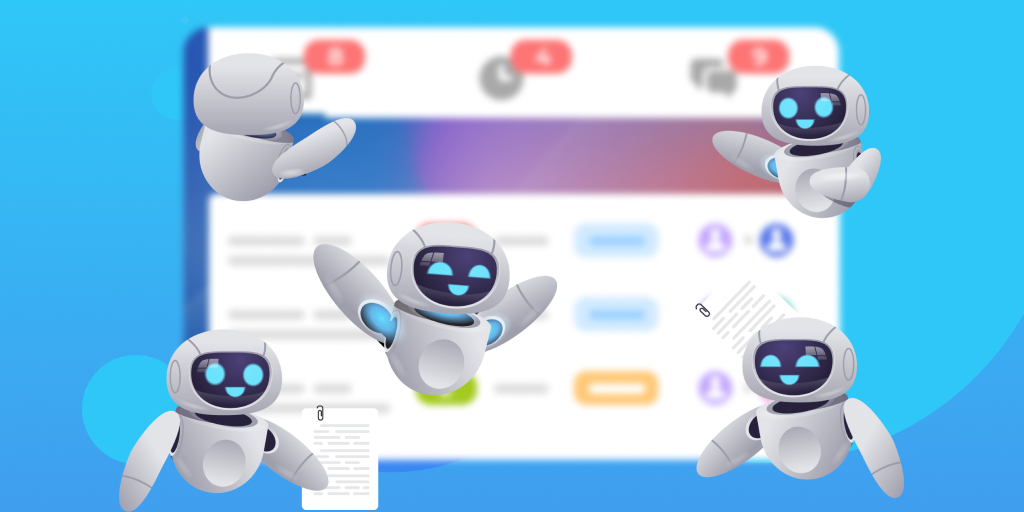In a world where technology evolves at lightning speed, staying ahead of the curve is crucial for small business owners. Artificial Intelligence (AI) has transitioned from a high-tech concept to a practical tool that can revolutionize small businesses across various industries. But how will AI impact small businesses? And what are the benefits of AI for SMEs? In this guide, we will explore these questions and provide an insightful look into the role of AI in shaping the future for small businesses like yours. From automation to customer service enhancements, you will discover practical tips on harnessing AI potential to drive innovation and efficiency.
Understanding AI and Its Relevance to Small Businesses
Before we dive into the impact of AI on small businesses, it is essential to understand AI basics. Artificial Intelligence refers to computer systems that can perform tasks usually requiring human intelligence, such as language processing and problem-solving. This technology is no longer limited to sci-fi films; it is now transforming how businesses operate. For small business owners, AI offers opportunities to streamline processes, reduce costs, and gain insights previously out of reach. Whether you are a tech enthusiast or new to the concept, exploring AI relevance will give you the edge needed to compete in today market.
How AI is Revolutionizing Small Business Operations
Gone are the days when only large corporations could afford cutting-edge technology. AI is democratizing innovation, making it accessible for small businesses. From automating repetitive tasks to optimizing supply chains, AI tools can significantly improve operational efficiency. For instance, using AI-driven inventory management systems, businesses can predict demand patterns, reducing waste and maximizing resources. By integrating AI into daily operations, small businesses can focus on core activities while AI handles routine tasks, leading to increased productivity and growth.
Enhancing Customer Experience with AI
Customer experience is at the heart of any successful business. With AI, small businesses can offer personalized experiences that rival those of much larger competitors. AI-powered chatbots and virtual assistants provide instant support, answering queries 24/7 and improving customer satisfaction. Furthermore, AI algorithms analyze customer data to deliver tailored recommendations, creating a more engaging shopping experience. By leveraging AI for customer service, small businesses can build stronger relationships and brand loyalty, ultimately driving sales and growth.
Leveraging AI for Marketing and Sales
Traditional marketing strategies can be time-consuming and expensive. Enter AI—an efficient and cost-effective solution for small business marketing. AI tools analyze consumer behavior patterns, helping you craft targeted campaigns that resonate with your audience. Automated email marketing, social media scheduling, and ad optimization are just a few ways AI streamlines marketing efforts. Additionally, AI can assist in lead generation by identifying potential customers, increasing conversion rates. By incorporating AI into your marketing strategy, your small business can achieve better results with less effort.
AI-Driven Financial Management Solutions
Managing finances can be a daunting task, especially for small business owners juggling multiple responsibilities. AI simplifies this process by offering intelligent financial management solutions. AI-powered accounting software automates bookkeeping tasks, ensuring accuracy and saving time. Predictive analytics provide valuable insights into cash flow trends, enabling informed decisions about resource allocation. By adopting AI-driven financial tools, small businesses can maintain financial health and focus on strategic growth.
AI-Powered Inventory and Supply Chain Management
Inventory management is critical for small business success, but it can be challenging to balance supply and demand. AI transforms this process by providing smart inventory management solutions. Machine learning algorithms analyze historical data to forecast demand, optimizing stock levels and reducing carrying costs. For businesses relying on supply chains, AI enhances visibility and tracking, minimizing disruptions and improving efficiency. Implementing AI in inventory and supply chain management ensures small businesses are well-prepared to meet customer needs while maximizing profitability.
Overcoming Challenges in AI Adoption
While AI presents numerous benefits, adopting this technology can pose challenges for small businesses. Limited budgets, lack of expertise, and resistance to change are common obstacles. However, these challenges can be overcome with careful planning and the right resources. Start by identifying specific areas where AI can add value to your business, such as automating repetitive tasks or improving customer service. Invest in user-friendly AI tools tailored to small businesses, and consider partnering with AI vendors for additional support. By addressing these challenges head-on, small businesses can successfully integrate AI into their operations.
Real-Life Examples of AI in Small Businesses
The impact of AI on small businesses is not just theoretical—it is happening in real life. Consider [Local Bakery], which uses AI-driven demand forecasting to optimize its baking schedule, reducing waste and increasing profits. Or [Boutique Retailer], where AI-powered chatbots handle online inquiries, freeing up staff to focus on in-store customers. These examples demonstrate how AI can be a game-changer for small businesses, providing tangible benefits and driving success. By drawing inspiration from these success stories, you can explore opportunities to implement AI in your business.
The Future of AI and Small Businesses
AI is not a passing trend; it is shaping the future of business. As AI technology continues to advance, small businesses have the opportunity to stay competitive by staying informed and adapting to these changes. Innovations such as AI-powered personalization and enhanced automation will become standard practices, allowing small businesses to offer exceptional value to their customers. By keeping up with AI developments, small business owners can ensure they remain at the forefront of their industry, ready to seize new opportunities.
Building a Community of Tech-Savvy Entrepreneurs
The impact of AI on small businesses extends beyond individual organizations—it fosters a community of tech-savvy entrepreneurs. By sharing insights, experiences, and best practices, small business owners can learn from one another and collectively thrive in an AI-driven world. Networking events, online forums, and industry conferences provide valuable opportunities to connect and collaborate. By participating in this community, small business owners can stay informed about the latest AI trends and strategies, ensuring their continued success.
Conclusion
AI is transforming the landscape for small businesses, offering innovative solutions that drive efficiency, growth, and competitive advantage. By understanding AI impact and exploring its applications, small business owners can harness this technology to future-proof their operations. From improving customer experiences to streamlining operations, AI offers endless possibilities for growth and success. To make the most of AI, small business owners should stay informed, invest in the right tools, and engage with the tech-savvy community. By doing so, they will be well-equipped to navigate the evolving business landscape and achieve sustainable growth. For more insights and tools on integrating AI into your business, join our community of innovators and explore the resources available to help you succeed.






Blog Comments